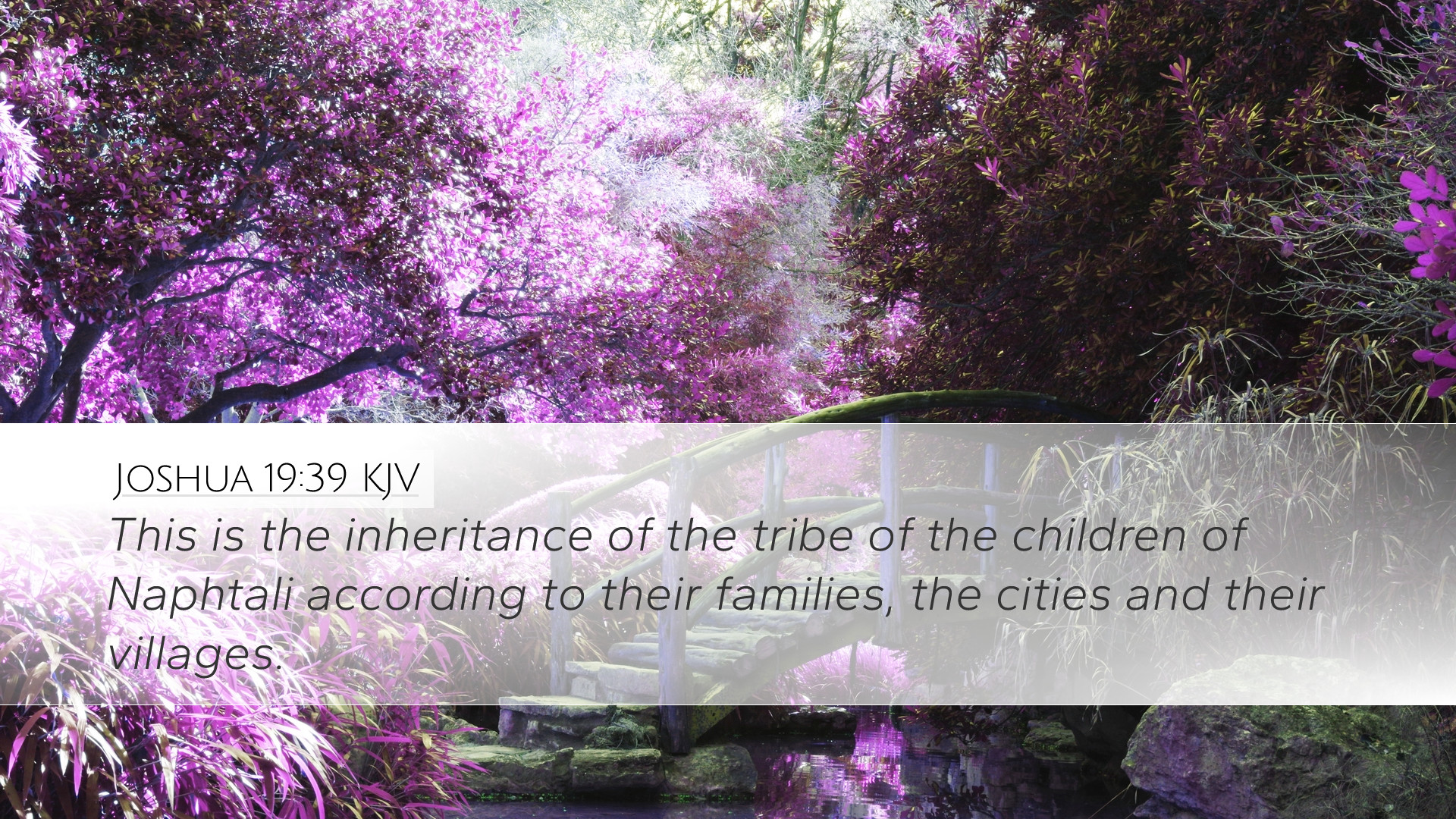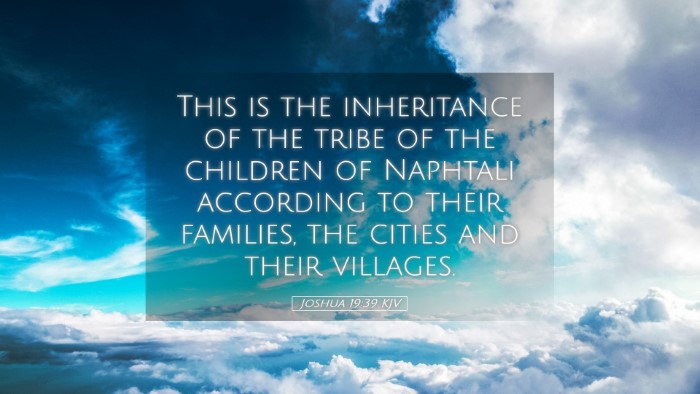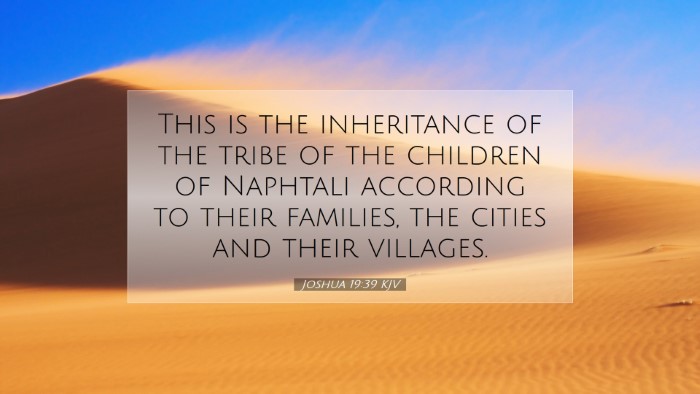Commentary on Joshua 19:39
Text of Joshua 19:39: "This is the inheritance of the tribe of the children of Naphtali according to their families, the cities and their villages." (KJV)
Contextual Overview
In the Book of Joshua, we see the distribution of land among the tribes of Israel, marking the fulfillment of God's promise to His people. This specific verse, Joshua 19:39, serves as a pivotal conclusion to the allotment of territory for the tribe of Naphtali and plays a crucial role in understanding the broader themes of inheritance and divine provision.
Commentary Insights
General Analysis
Matthew Henry, in his classic commentary, highlights that this verse encapsulates the culmination of the land distribution process. The inheritance assigned to Naphtali is indicative not only of their geographical territory but also signifies their role within the communal life of Israel. Henry remarks that each tribe received land suited to their characteristics and capabilities, emphasizing that God's plans for each tribe were intentionally crafted.
Spiritual Significance
Albert Barnes notes that the providence of God is visible in the allocation of territories among the tribes, portraying a picture of divine fairness and justice. The mention of families indicates a structured organization within the tribe, which is essential for maintaining order and community. This division serves as a reminder for pastoral leaders to foster communal relationships among church members, drawing parallels between ancient Israel's tribally organized system and contemporary church fellowship.
The Tribe of Naphtali
Adam Clarke elaborates on the significance of Naphtali, described in Genesis 49:21 as a tribe marked by swiftness and eloquent speech. This aspect of their identity is reflected in their chosen inheritance, which included fertile land and natural resources conducive to agriculture and trade. Clarke’s insights prompt us to consider the talents and strengths present in our communities and how they can be harnessed for collective growth.
Geographical Importance
The inheritance mentioned includes not just cities but also their surrounding villages, indicating a rich agricultural lifestyle. Matthew Henry’s observations suggest that the prosperity of Naphtali was largely tied to their proximity to Galilee, a region steeped in prophetic significance as Christ's ministry unfolded in the New Testament. This geographical note emphasizes the importance of recognizing the spiritual fruits that can arise from God-ordained locations.
Theological Implications
Verse 39 reflects deep theological truths regarding God's faithfulness to His promises. The land distribution highlights the covenantal relationship between God and Israel, underscoring His unwavering commitment to bless His chosen people. The concept of inheritance evokes New Testament themes of believers as heirs to the Kingdom, inviting a reflection on the gracious gifts bestowed upon the Church.
Application for Modern Readers
In applying this text, modern pastors and theologians are encouraged to explore what it means to possess an inheritance in Christ. Just as the Israelites received physical land, Christians are called to realize their spiritual inheritance and the responsibilities that accompany it. There is a call to steward our communities, ensuring that they reflect the values of justice and community depicted in Joshua.
Practical Considerations
-
Community Building: The structure of tribes emphasizes the importance of community. Churches should strive to create environments where each member's gifts are recognized and utilized.
-
Faithfulness to Divine Promises: Just as God fulfilled His promise to Israel, believers today can trust in God's faithfulness to His Word.
-
Encouragement and Empowering Leadership: Church leaders should derive insights from Naphtali's swift mobility—encouraging active discipleship and equipping members for service.
-
Creating Opportunities: The prosperity seen in Naphtali's inheritance reminds us to pursue opportunities for growth, both spiritually and communally.
Conclusion
In summary, Joshua 19:39 not only recounts a historical moment in Israel's history but also provides spiritual and theological foundations for understanding community, heritage, and divine provision. Engaging with this text encourages modern readers to embrace their identity as heirs of God's promise while actively participating in the life of the Church and the broader community.


